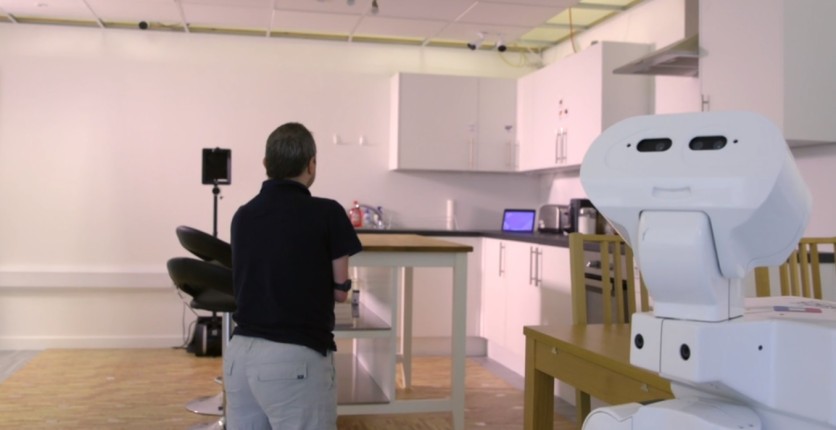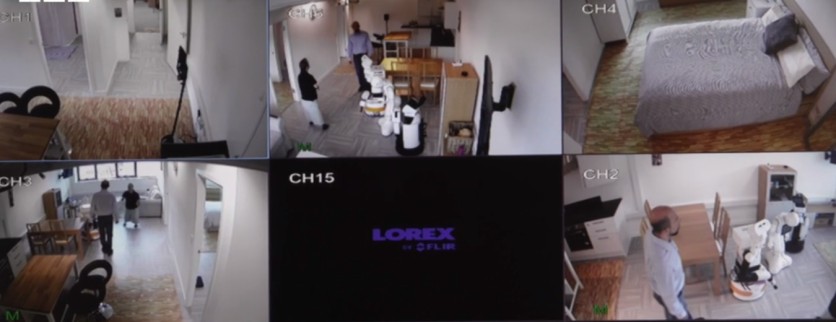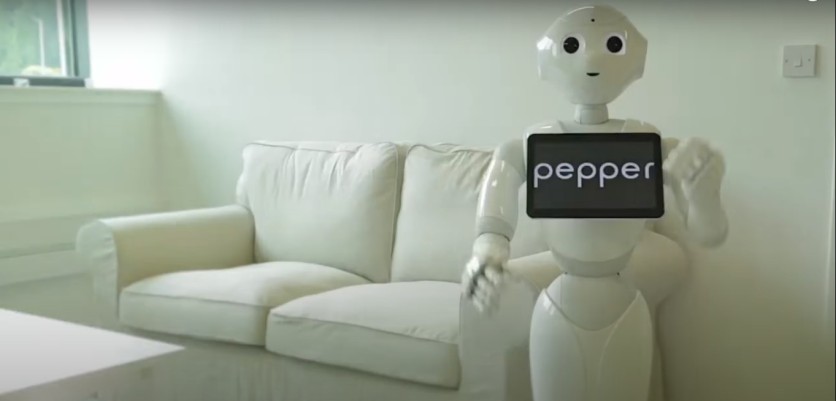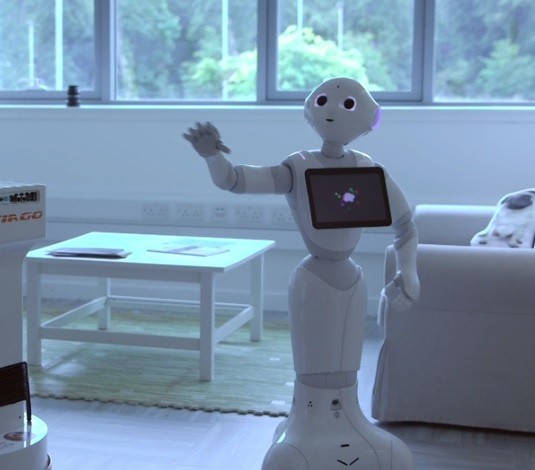Heriot-Watt University researchers have created a smart flat laboratory for testing robots and new technologies that would help the elderly and other vulnerable people with disabilities, those who need care to live independently.

In a video shared by BBC, it showed a new way of testing technologies. Instead of doing the tests in a laboratory, researchers decided to create a flat lab that is packed with sensors, smart technologies, and even robots to help people move around. People can ask Alexa to turn the lights on or adjust the volume of the music.
The smart lab is part Heriot-Watt University's National Robotarium. It is to be the world's remote and first open access lab to research solutions that serves Ambient Assisted Living (OpenAAL).

Scientists are working with care providers and technical industry to develop different technologies using Internet of Things (IoThings), artificial intelligence, smart sensors, robotics, wearable devices, and other technologies. They aim to address challenges in online shopping and video communication as well as temperature control, monitoring medicine intake, and signs of illness.
Heriot-Watt University assistant professor and project leader Dr. Mauro Dragone said the team's priority is to develop solutions that are feasible and practical, which can be quickly implemented amid challenging economic and social conditions.

"Successful innovation in this field is crucial to alleviate the strain on our health and social care services and enhance the resilience of our communities," said Dragone.
The doctor also noted that the project has the potential to bridge significant communication gaps, administer wide cooperation in the industry, and "break down institutional silos" by bringing together sectors as well as mobilizing Scotland's cutting-edge technology.
Introducing Pepper, the robot
The National Robotarium's smart lab houses three robots to assist and accompany vulnerable groups during the pandemic.

One of the robots is Pepper, the world's first humanoid launched in Japan in 2014. It is programmed to perform tasks normally done by care workers such as identifying missing items in the kitchen, making phone calls, and occasional aerobics instruction.
Dragone told AFP that they are focused on understanding the needs of the most vulnerable during this crisis and finding the technology that could make their lives better. As pandemic triggered a surge of loneliness and depression among the elderly and other vulnerable groups, Pepper gained a new role as a potential companion.

Coined as Ambient Assisted Living, the project will support vulnerable groups of people whose conditions have been worsened by social isolation as demanded by the current health crisis. For the experiment, Pepper and the other two robots are put to work in the smart lab, which looked like a standard apartment with a living room, bedroom, bathroom, and kitchen.
The project is funded by the Engineering and Physical Sciences Research Council's Impact Acceleration Accounts scheme. It also received support from the NHS Lothian, Blackwood Home and Care Group, Consequential Robotics, Alcuris Ltd, Cyberselves, The Data Lab, and The Digital Health and Care Institute.
The research team also urges service companies, producers, and suppliers of smart home solutions, telehealth, assistive technology, telecare, and other IoThings products, including alarm systems, ambient sensors, smart video calling software, wearable fitness devices as well as infrastructure and network providersto provide additional inputs on the project.
This is owned by Tech Times
Written by CJ Robles

![Apple Watch Series 10 [GPS 42mm]](https://d.techtimes.com/en/full/453899/apple-watch-series-10-gps-42mm.jpg?w=184&h=103&f=9fb3c2ea2db928c663d1d2eadbcb3e52)


